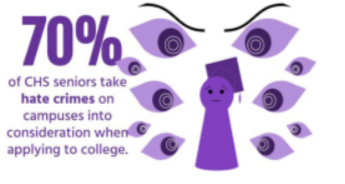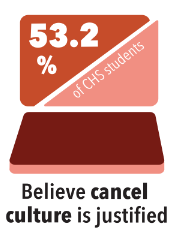Texas passes strictest abortion ban in US history
UNSPLASH PHOTO COURTESY OF Pete Alexopoulos
The Texas Heartbeat Act has sparked controversy throughout the nation. https://unsplash.com/license
November 24, 2021
The Texas Heartbeat Act, also known as the Texas abortion ban, came into effect on Sept. 1, 2021, making it the most restrictive abortion law in the United States. It places a ban on abortions as soon as a fetal heartbeat is detected and makes no exceptions for cases of rape or incest.
The act has sparked controversy throughout the United States because it overrides the 1973 Roe v. Wade Supreme Court case that established women’s rights to abortions without government interference. According to the act, private individuals will be able to sue anyone who performs or helps perform an abortion, and can be compensated at least $10,000 in statutory damages if they win. This gives the pretense that civilians are enforcing the ban rather than government officials.
CHS biology and forensics teacher Leah Morgan expressed her concern about the significant legal impact of the act and how it will affect the future.
“[The ban] is a civil way around a criminal law,” Morgan said. “It opens up a new way in which the government can control people’s actions by piting two people against each other.”
The ban has been temporarily blocked by the U.S District Court Judge Robert Pitman, who forbade state court judges from accepting lawsuits stemming from the Texas bill, though it is unclear how long it will be in effect.
Despite the block, it has already begun to affect the lives of Americans, primarily Texans. While abortion clinics in several states outside of Texas are seeing an influx of patients, according to the Washington Post, those in Texas are exprierencing a dwindling amount of patients. One Planned Parenthood location in Houston performed only 52 abortions over the ten days since the ban took place, a significant difference from its usual two dozen abortions daily.
Despite the severity of the ban, there are those that believe extreme measures were necessary on a morality basis, primarily to protect the lives of the unborn.
“You can argue that the harm being done before this law was babies being killed,” said Texas Republican Attorney General Ken Paxton. “And now, all of that is being addressed civilly.”
While some believe that this ban was necessary, others feel it is a step backwards, shaking the foundation of Roe v. Wade, as well as affecting individual rights and the structure of future laws. Overall, the ban has caused many to feel that the future of politics and law-making is uncertain.
Sophomore Nicole Sandvik of Manalapan also voiced her concerns regarding the law and its implications.
“It’s essentially lawmakers telling us that [they] have a right to tell you what you are and aren’t allowed to do with our bodies,” Sandvik said.
















